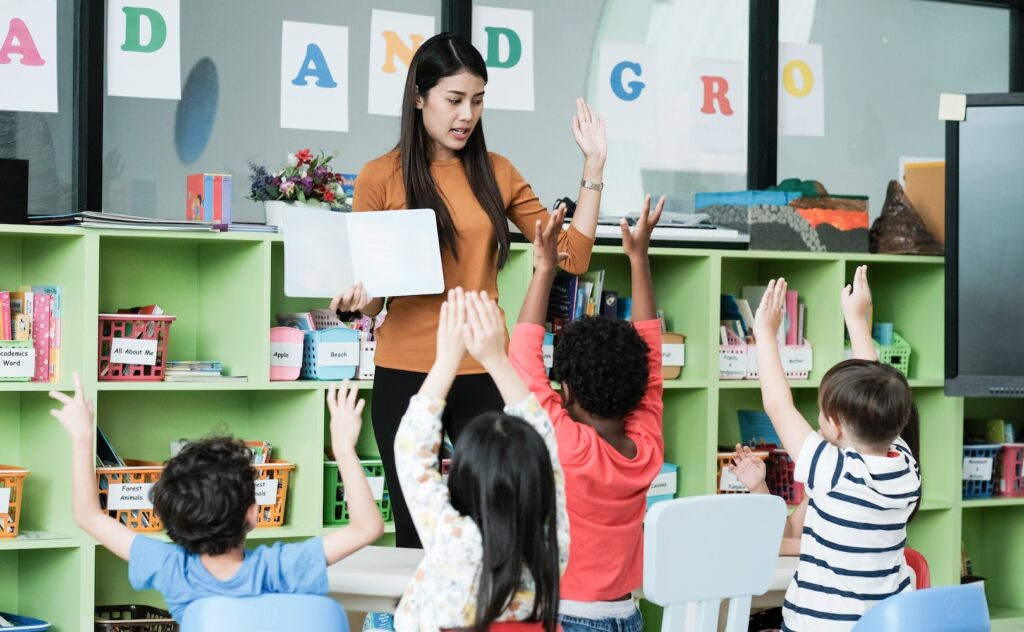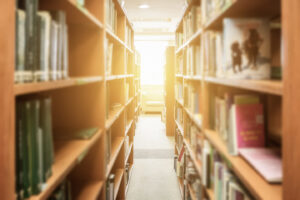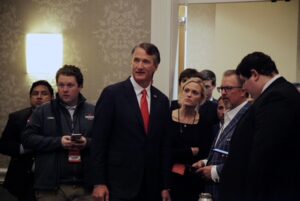‘Do as I say, not as I do’: What do public school teachers know that parents don’t?
On their face, public school teachers and members of Congress don’t have much in common. But they share at least one surprising characteristic.
Both send their children to private schools…

On their face, public school teachers and members of Congress don’t have much in common. But they share at least one surprising characteristic.
Both send their children to private schools at much higher rates than the average American parent.
A 2004 study from the Thomas B. Fordham Institute found urban public-school teachers to be almost twice as likely to enroll their children in a private school than the average Joe: 21.5% vs. 12.2%.
In 2013, economist Walter Williams reported similar data: 20% of public educators send their kids to private school, compared to just 11% of all parents.
And it’s not all about private vs. public.
Nearly 30% of teachers made use of some alternative education model, be it a private school, charter school or even homeschooling, revealed a 2015 survey by Education Next.
In big cities, the numbers were even higher.
According to Williams, 44% of Philadelphia public educators send their children to a private school, along with 41% of Cincinnati teachers, 39% of Chicago teachers and 34% of San Francisco and Oakland teachers.
And between 33-44% of members of Congress do, too.
“The fact that so many public school teachers enroll their own children in private schools ought to raise questions,” Williams wrote. “What would you think, after having accepted a dinner invitation, if you discovered that the owner, chef, waiters and busboys at the restaurant to which you were being taken don’t eat there? That would suggest they have some inside information from which you might benefit.”
So, what do these teachers have to say for themselves?
“Here’s why I’m a public school teacher but a private school parent,” wrote one educator. “This is not an indictment of the public school system. These teachers are people that deeply love education, are serious and committed to helping shape the lives of young people, and are doing their best in public school settings to deliver the best possible educational experience they can.
“[But] every parent wants to make sure that their children [get] the best possible education. Sometimes that’s just not going to happen at a public school – and who better to diagnose the situation than a teacher working in that facility?”
Michael Godsey, another public-school teacher, admitted to “superficially loath[ing]” his children’s private school, while simultaneously appreciating that it “promotes ‘personal character’ and ‘love of education.’”
“The tangible difference between this environment and that at the public school in the area was stunning to me – even though I’m a veteran public school teacher,” Godsey recalled.
In other words, public school teachers get daily firsthand proof that a one-size-fits-all system won’t serve all students.
The Fordham Institute found even lower-income teachers were comparatively more likely – not less – to send their children to private school. In the lowest income bracket, teachers (15%) were more likely to pay out of pocket for private school tuition than their non-teacher counterparts (10%).
“Teachers, it is reasonable to assume, care about education, are reasonably expert about it, and possess quite a lot of information about the schools in which they teach,” researchers concluded.
“If they do not [send their own children to the public schools in which they teach], then we might reasonably conclude that those in the best position to know are signaling a strong [stock market-like] ‘sell’ about public education in their communities.”
No wonder, then, that even the most ardent public-school activists – such as Chicago union boss Stacy Davis Gates – send their kids to private school, even while they preach for others to “do as I say, not as I do.”



